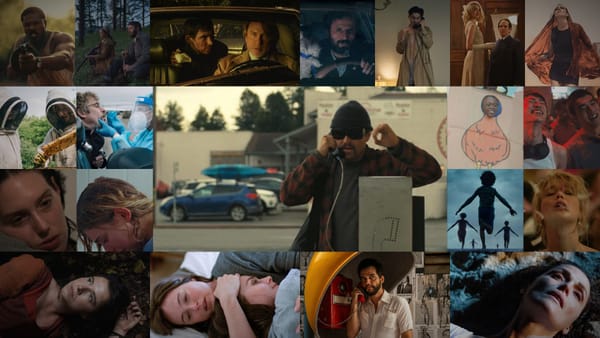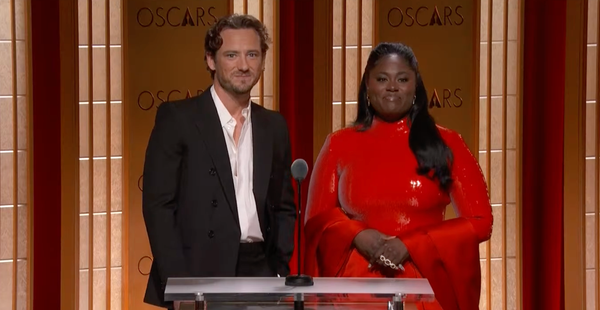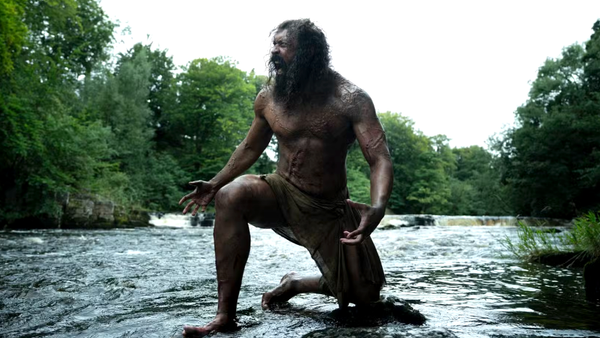Cannes 2025 Dispatch #2: Die My Love, The Phoenician Scheme, The Chronology of Water, and More
Stephen David Miller gives his second update from the Cannes Film Festival, including reviews of new films by Richard Linklater, Wes Anderson, Lynne Ramsay, and Kristen Stewart
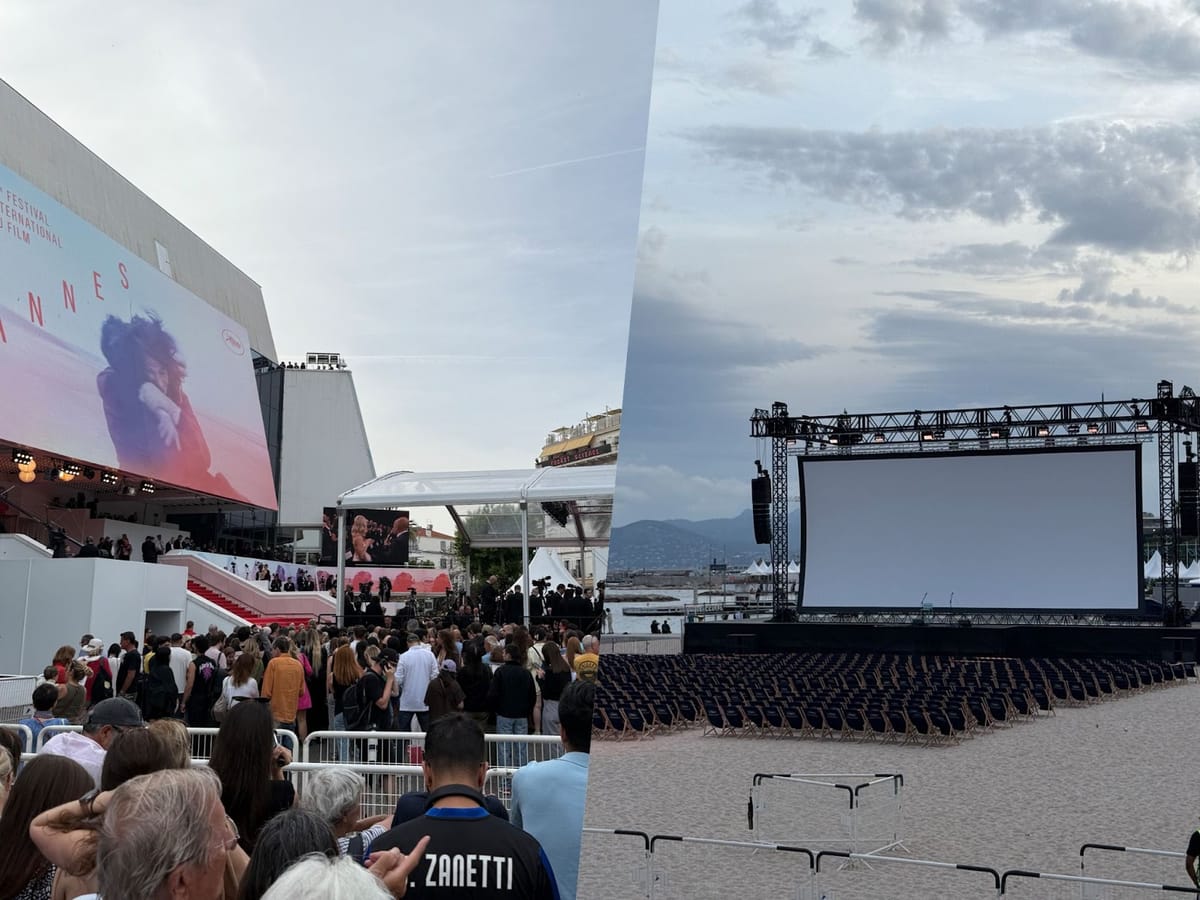
Hello again, Decoding Everything readers! I’m back with another installment of my coverage of the 2025 Cannes Film Festival. If you haven’t already, be sure to check out my previous dispatch for an introduction to the fest.
In Sunday’s post I mentioned that this year’s slate includes a disproportionate number of heavy-hitters, meaning premieres that attract the attention of crowds without Criterion Channel subscriptions. Sebastián Lelio may be “festival famous,” but Wes Anderson has inspired a genre of meme. For the first few days, it was possible to balance my diet (and subsequent reviews) between major titles and new discoveries. But as I write this on the morning of the 8th day of competition, all balance has gone out the window. We’ve now entered the frantically-catching-up phase of the festival, defined less by “what can I discover?” than “what can I not afford to miss?” So while I always like to sprinkle in underseen gems, today I’ll mostly focus on titles that were expected to make a splash.
Fortunately, those splashy premieres often deserve the hype surrounding them. One of them is currently my favorite of the fest! More on that later.
Publicity photos like to sell a particular experience, but there are multiple ways that one can Cannes. In past years, when the war for tickets was slightly less heated, my schedule was oriented around “galas”: formal-wear-mandated evening events when a new film announces itself to the world. This time around, for logistical reasons, I’ve chosen instead to prioritize morning-after “reprises”: screenings after the hangover of the carpet has faded, when you can line up, sans paparazzi, to catch whatever it is you missed. Although I’ve still thrown on a tux on a handful of occasions, this year has generally been a more casual, espresso-fueled affair.
In many respects, it’s a better experience. Tickets are easier to book, albeit that’s grading on a Sisyphean curve. Absent the siren song of celebrity, the audience is significantly more likely to actually care about what’s on screen. And even if this tactic does put my completist streak at risk (in many cases, my first attempt is also my last chance to catch a particular film), that stress is nothing compared to the pressure of literally begging on the street. Which is a real thing which I’ve also done this year.

Still, for all the convenience that comes with skipping those glitzy premieres, I often find myself missing the frenzy.
In Defense Of The Spectacle
I’ve referenced before, with a bit of derision, how the red carpet often overshadows the movies. More than a film festival, Cannes is a status symbol, a luxury accessory many are eager to snag. If you think it’s outrageous to spend multiple hours tapping “refresh” to get into a screening, consider the absurd lengths some non-badge-holders are willing to go. Despite rules to the contrary, there is a thriving underground market for gala invitations. A nosebleed seat at a lesser known film might run you a humble €3,500. For prime real estate at a major premiere, you can easily go north of €10k. People can and do pay this all the time, and it’s not because they’re Kelly Reichardt enthusiasts.

For all the gross excess inherent to that status symbol, it does have a positive trickle down effect. It means every gala, however small the film it celebrates, feels positively enormous when you’re inside it. Show up 45 minutes before a given premiere and you’ll discover a line of sharply dressed attendees stretching two full city blocks. To the right is an endless flow of sports cars with black tinted windows, shuttling celebrities from their five star hotel lobbies to the carpet. It doesn’t matter how many times I’ve attended these, or how sleep-deprived, or hungry, or irritated I am as I scan my badge and enter. Standing in that line, I feel the thrill.
That buzz redounds onto the film, as well as to the people who brought it to life. We file inside and watch as the cast—lifelong veterans and first-time actors alike—walk the red carpet. They cry. They hug each other. They take a bow. Then they enter the auditorium, where they’re met with panoramic applause as they file into their designated seats.
When the lights dim and the screening begins, the goodwill continues. It’s become something of an inside joke that the audience will cheer for every single production company and studio name that pops on the screen. Some of these, I’m sure, come from those companies’ employees. Most, I assume, come from strangers.
Many will spend the next two hours ignoring the movie they’d just been cheering for. Last night I sat behind a couple who spent the entire runtime rewatching videos they’d taken of themselves being seated for the screening—a bizarre, but apt metaphor for the contradictions of Cannes. But many more will tune out the noise and pay attention, and some will even find themselves won over by art they never would have noticed back at home. The context changes them, and I find it changes me too. I absorb the reverence of the moment and it tints the way I view things, like an active participant rather than a consumer.
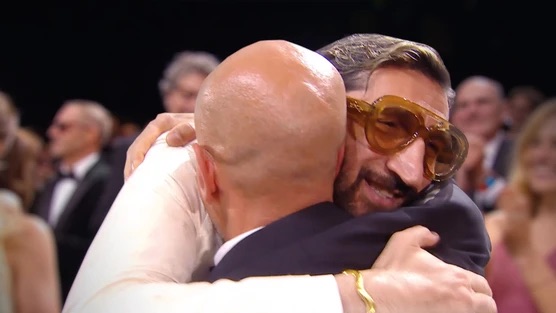
When it’s all said and done, there’s only one thing left to do: clap. In the past, I’ve teased the breathless way the media covers these events. It’s implied to be a barometer of critical reception, which it isn’t. Everyone, and I mean everyone, gets a standing ovation at Cannes.
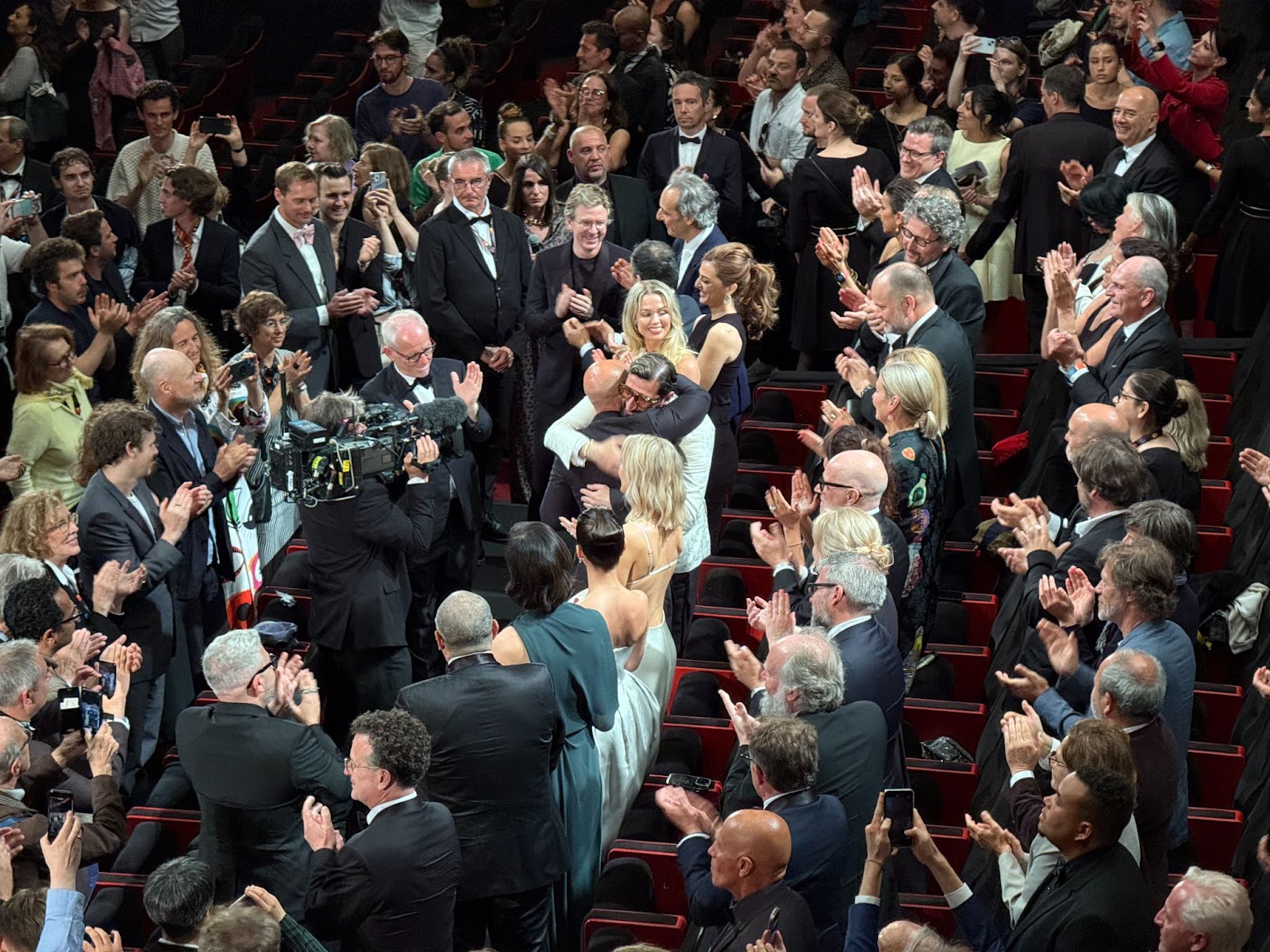
But zoom out, beyond the PR-approved narrative and the circus that surrounds it, and you’ll find something moving about this tradition. Everyone gets a standing ovation; everyone gets their moment. For 10+ minutes, there is nothing to do but celebrate the artists. Not because they knocked it out of the park but because they’re here. Even when I dislike the film, I can’t help but join in with the chorus. You made it. You did it. Bravo.
Mid Festival Roundup: Another 5 Notable Premieres
Now let’s turn our attention to the movies themselves. At this point in the festival, there have been too many noteworthy films to tally. Today, I’ll talk about four premieres that are guaranteed to garner discourse when they come to the States, and one which I can only hope will get attention.
Nouvelle Vague
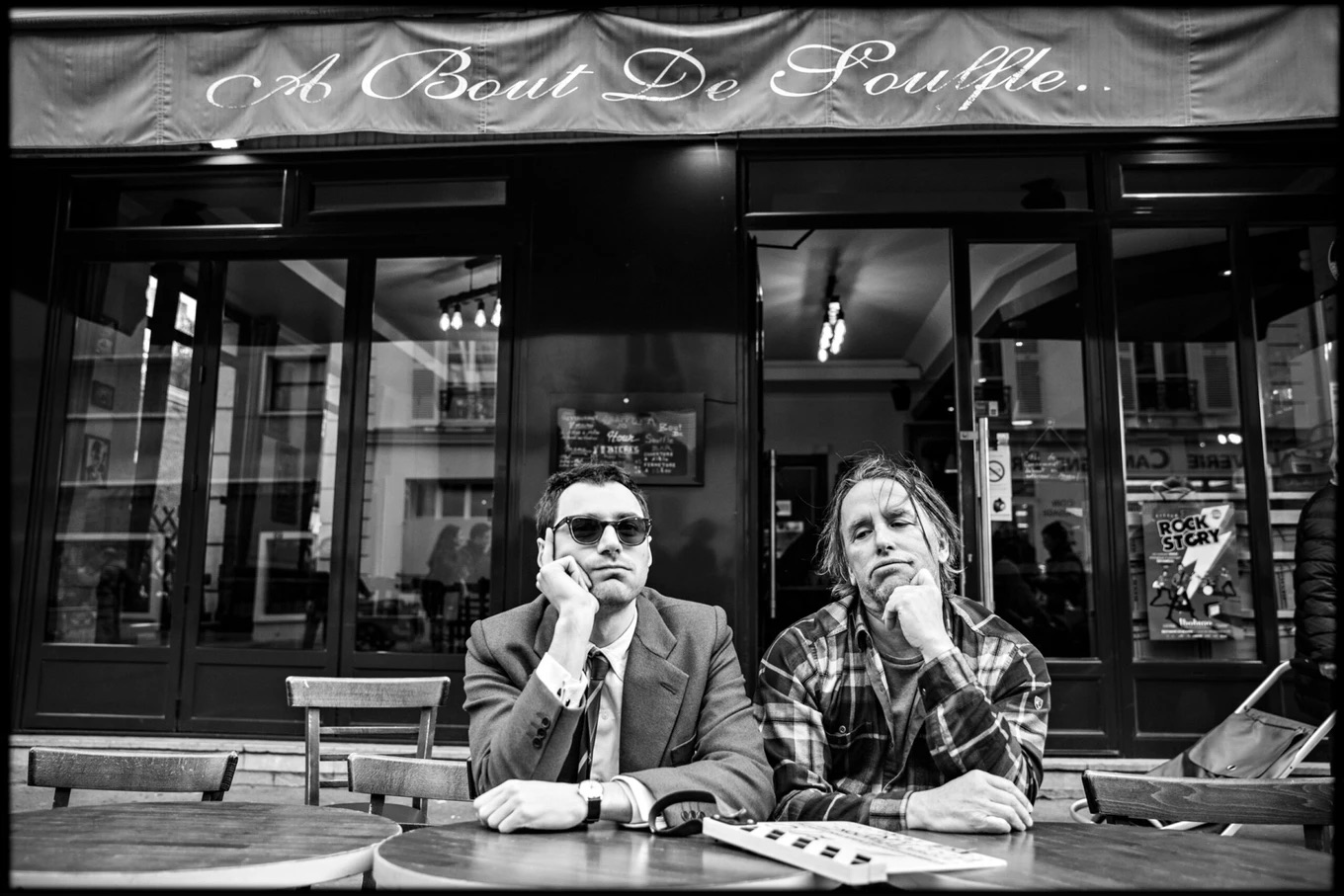
As a huge fan of Richard Linklater, I say the following with love. With few exceptions, his projects can be neatly separated into three buckets: Contemplative Talkies, Breezy Hangouts, and Corny-Ass Movies For Dads. The first category (Waking Life, Boyhood, the Before series) will forever hold a place in my heart; in many ways, it taught me how to love movies. The second (Dazed & Confused, Slackers, Everybody Wants Some!) is an aesthetic I greatly admire, though I feel less of an emotional connection. The third (School of Rock, Apollo 10 ½, and with apologies to Glen Powell, Hit Man) are often charming, but decidedly less meaningful to me. So when it was announced that he would be premiering a new film in competition at Cannes, I was curious. Which Linklater would be appearing on the Croisette?
As it turns out, it’s mash-up of the three.
A black and white period piece about the making of Jean-Luc Godard’s Breathless, Nouvelle Vague is nothing if not ambitious. It’s gutsy enough to try to remix a classic, let alone for an American to effectively re-shoot one of the most influential films of all time, in a language he doesn’t speak, and premiere it to the gatekeepers of French cinema. And it’s no small testament to Linklater’s craft that he mostly pulls it off. Even my local Cannes friends walked away impressed. This thing looks and feels like it was filmed in 1960s Paris — Mank with more whimsy but similarly striking formal control. As I mentioned above, the DNA of all three Linklater genres is woven in here. The Contemplative is voiced by Godard himself, l’enfant terrible who could wax poetic about art and life like nobody’s business. Breezy Hangouts can be found in Jean-Luc’s ragtag cast and crew, as they wile away countless “shooting” days without having a single scene to shoot. Unfortunately, the bulk of the runtime succumbs to the pull of the Dad Movie. I suspect it’s a problem of reverence. Linklater is so palpably in love with the film he’s homaging, he feels compelled to show us all of it. This includes dozens of scene-for-scene recreations of Breathless, cameos of recognizable French New Wave figures roughly every three minutes, and a detailed accounting of every single day of the shoot. Godard’s aim was to eschew rigid templates and capture spontaneous life as it was lived, and Linklater’s oeuvre suggests he feels the same. So I’m puzzled at why this ode to Godard colors so neatly inside the lines, substituting emotional complexity for a hagiographic collection of facts. As charming and well made as Nouvelle Vague is, its total lack of surprises made for one of my biggest let downs of the fest.
The Chronology of Water
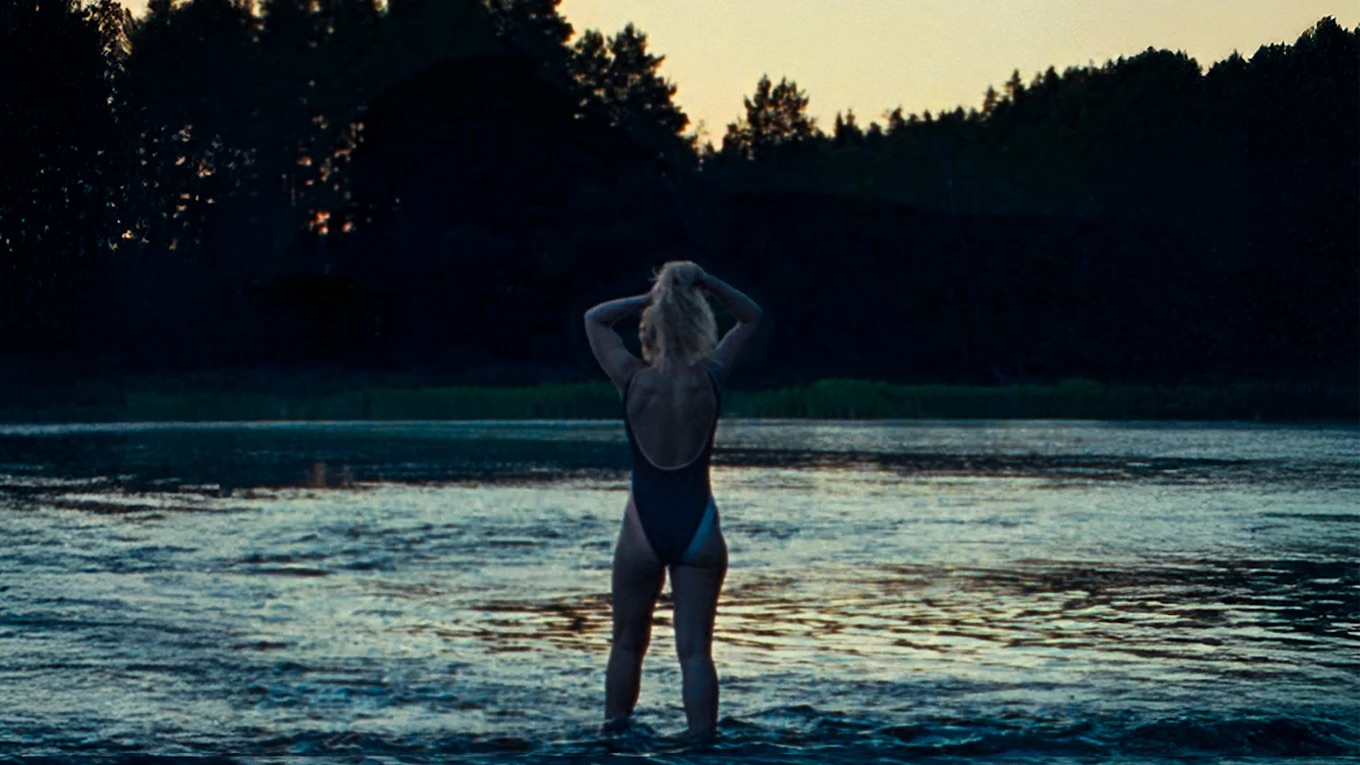
Sometimes renowned directors let you down, and sometimes first time directors surprise you. As a performer, Kristen Stewart has consistently proven herself to be open to risky, challenging projects. But having seen my share of actor-turned-director festival fare, I know better than to assume those instincts translate behind the camera. I prioritized Stewart’s Un Certain Regard debut less out of confidence that it would be good than a certainty that, whatever it was, her name would bring butts to the theater.
So I’m pleased to report that The Chronology of Water succeeds beautifully as a work of art on its own merits. In fact, “succeeds” is a massive understatement. Despite not even making it to the Official Competition, this currently ranks as my favorite film of the fest. In hindsight, none of this ought to have been so surprising. An adaptation of Lidia Yuknavitch’s memoir about abuse, addiction, and the process of writing, Chronology had all the ingredients to win me over. As a lover of language and emotional vulnerability, this is extremely in my wheelhouse. But what I couldn’t have predicted was how much Stewart’s direction would elevate those raw materials. Eschewing the play-it-safe template which plagues many celebrity directorial debuts, she has a clear creative vision and commits to it completely. In her hands, what could have been a (justifiably!) heart wrenching, linear drama becomes a kaleidoscopic work of poetry. Whispered and profane, soft with jagged edges, scrawled pages from a diary soaked in vinegar and piss. The confessional style, paired with Imogen Poots’ fearless portrayal of Lidia, bowled me over like nothing else this year.
As my failed attempt at getting into the red carpet can attest, Stewart continues to attract a legion of fans. I’m thrilled that she’s using that cachet to show them such uncompromising art.
Die, My Love
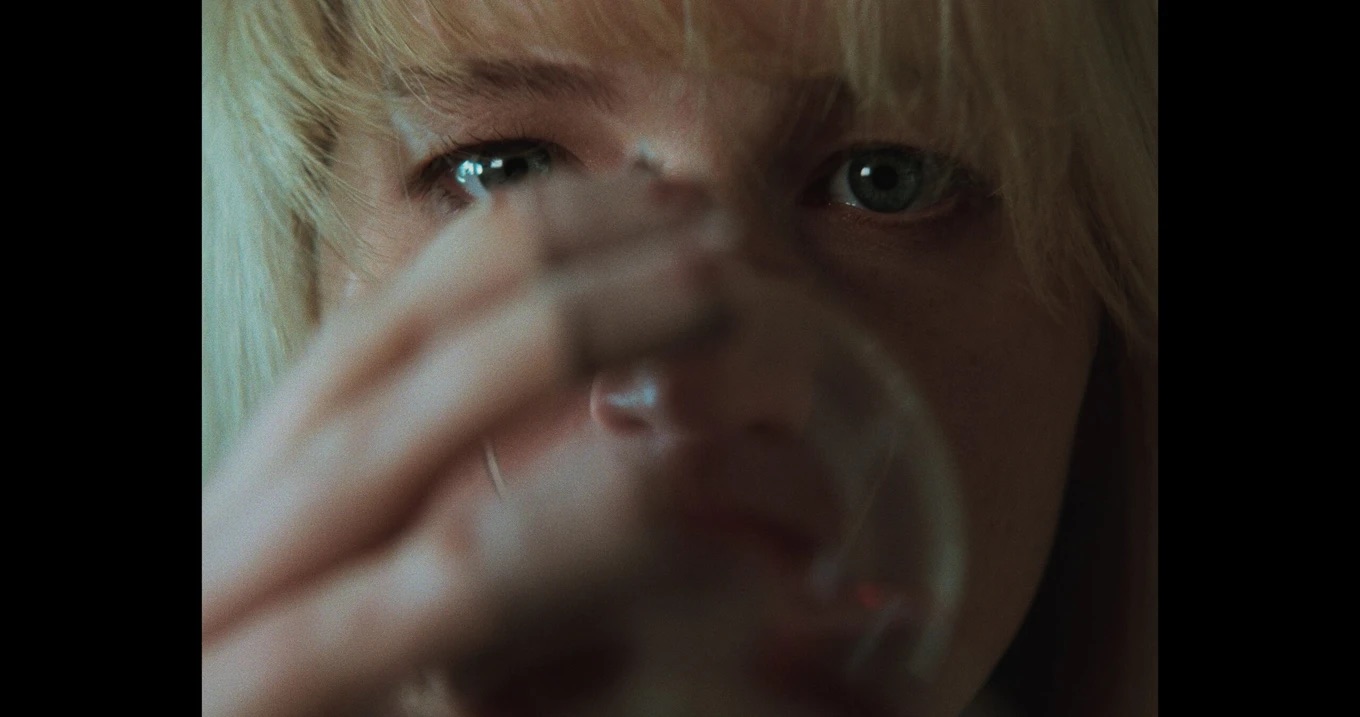
While we’re on the subject of former YA megastars making audacious artistic decisions, let’s talk about Lynne Ramsay’s Die, My Love. Or, as I’m inclined to call it, A Streetcar Named Desire For Total Freaks. Jennifer Lawrence and Robert Pattinson star as a pair of toxic lovers who move into their rural, decrepit family home to raise a child. Much of the film is spent either fighting or preparing to have a fight. Pattinson slinks through every argument like a conflict-averse Brando, mumbling apologies yet always on the verge of some erratic physical act. In any other film, he’d be the standout. But Lawrence gives what is far and away the performance of her career as a sexually dissatisfied, existentially bored partner whose grip on reality has already slipped. She drinks like a sailor, stalks the yard like a jungle cat, and bleeds to add color to the beige palettes of her life. Her character is loud, horny, and defiantly unsympathetic, and she dominates this movie from beginning to end. Meanwhile, Ramsay uses every tool in her arsenal to maximize our discomfort. As she did with child-raising in We Need To Talk About Kevin, Ramsay uses sound design to put us in the thick of it: a screaming, barking cacophony of supposed domestic bliss. If Kristen Stewart is holding a cracked mirror up to addiction and the ferocity of desire, Ramsay and Lawrence want to pick it up and smash it in your face. This is an anarchic tour de force that practically dares you to leave the theater. I picked out the shards, licked my wounds, and fell madly in love.
The Phoenician Scheme
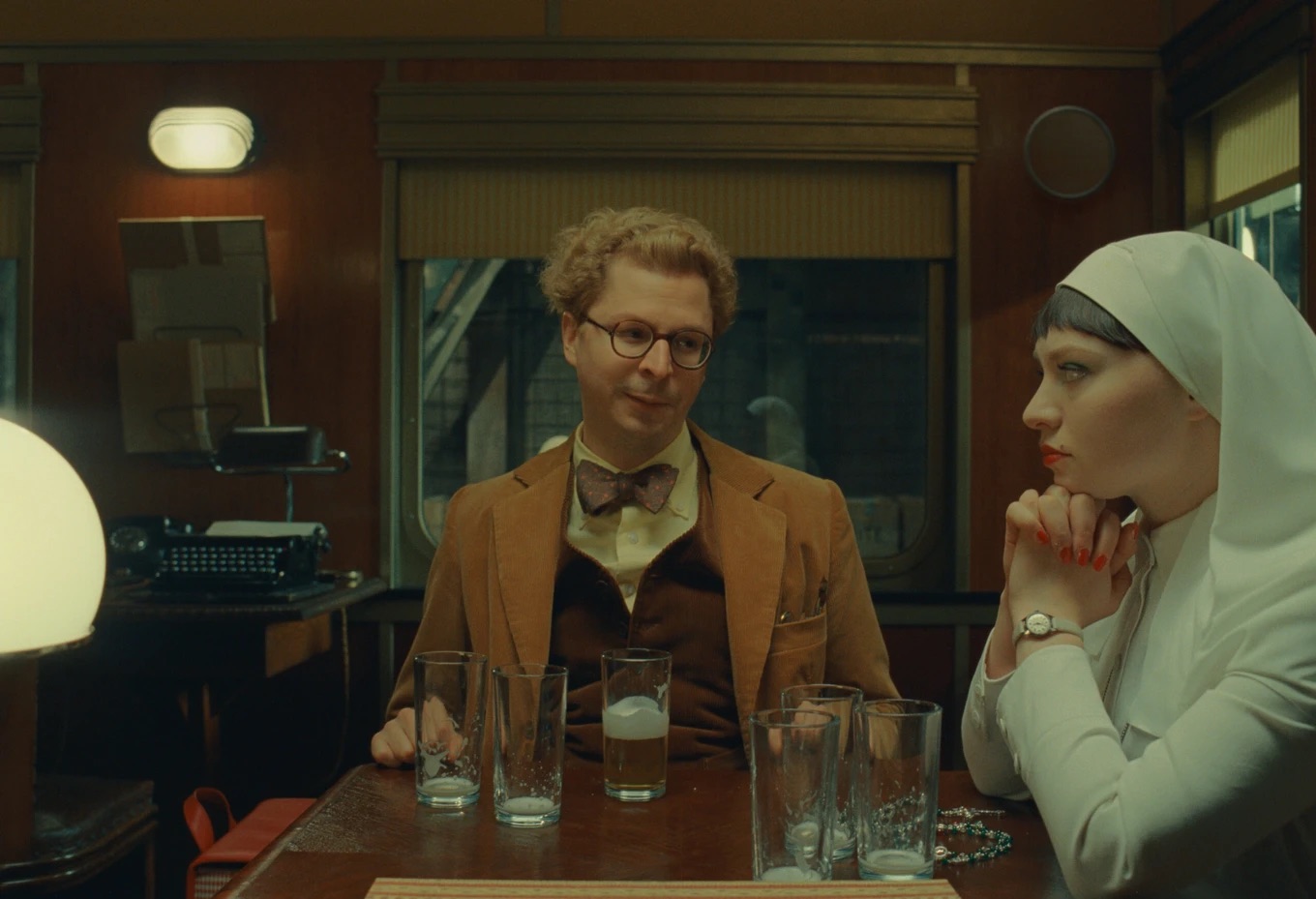
You might have picked up on a trend as to which types of films get me excited. Blame it on the blur of the festival, or maybe on the chaos in my country back at home. Whatever the cause, I find my patience for “handsome,” “controlled,” “expertly crafted” stories seriously wanting. I need something with a real heartbeat and teeth. So in all fairness to Wes Anderson, he never really stood a chance.
Which isn’t to imply that The Phoenician Scheme is a remotely bad movie. It’s a perfectly charming entry into the auteur’s canon. The zany caper follows a dictator (Benicio Del Toro) and daughter (Mia Threapleton), a woman of the cloth, through a fictional Balkan nation as they attempt to pass an infrastructure bill. Multiple roadblocks are set in their path, including but not limited to: a CIA plot to hike the price of metal rivets, a “Biblical” family member with a chip on his shoulder, and a horde of mercenaries trying to kill them. I know this probably sounds convoluted even by the standards of a 2020s Wes Anderson picture, but I assure you that it is remarkably easy to follow, leaning more towards Looney Tunes slapstick than whimsical exposition dumps. Contrary to popular sentiment, I don’t believe Anderson’s movies all look the same, and this one sees him continuing to explore new facets of his style. There are dream sequences here that look like nothing else in his collection. More importantly, he seems to have found a new contender for Lifetime Collaborator in Michael Cera, who takes to this brand of off-kilter as naturally as Emma Stone does for Yorgos Lanthimos’. This is entertaining stuff, and plenty of guffaws were had. But sadly, that’s all there is to it. The deeper introspection that thrilled me in Asteroid City is totally absent here: If there’s a point to any of the mayhem, it whizzed past me like a would-be assassin’s bullet. The Phoenician Scheme is the creative equivalent of cotton candy. At this point in the festival, I want a meal.
Eagles of the Republic

Fortunately, there’s another film in competition that made me laugh while also giving me something to chew on. Tarik Saleh’s Eagles of the Republic is a bleak, biting satire about the difficulty of honest expression under an authoritarian regime. George Fahmy (Fares Fares) is the biggest name in Egyptian cinema, dubbed “the Pharaoh of the Screen” for his ability to bend the box office to his will. When a shady government representative approaches him about playing President Abdel Fattah el-Sisi in a patriotic film, he dismisses the idea as artistically bankrupt. But strongmen tend to be good at persuasion, and before long George has found himself on set, delivering speeches in a work of propaganda that grows more confining by the day. Studio meddlers want him to look like the President—without the baldness, the belly, or the unpleasant temperament, of course. He’s encouraged to give his subject a complex inner thought life, as long as those thoughts are unambiguously flattering and pure. It’s brutal work for an actor who prides himself on his craft. Playing the game does have its perks, though, and at a time when other artists are being blackballed by the regime, George is happy to build influence with men in high places. I won’t spoil where the story goes from that setup, except to say that Saleh is wading into extremely dark waters, and he navigates multiple tricky tones with expertise. Even as a total outsider to modern Egyptian politics, this struck me as daringly pointed, a protest in the trappings of a farce. As the steady rise of fascism continues back at home, I suspect Eagles will only grow in relevance over time.
And now I once again find myself racing out the door to catch another screening. Tune in next time for reviews of films by Spike Lee and Julia Ducournau among others, as well as final thoughts on the award winners of the fest.
Stephen David Miller is the co-host of The Spoiler Warning podcast.

